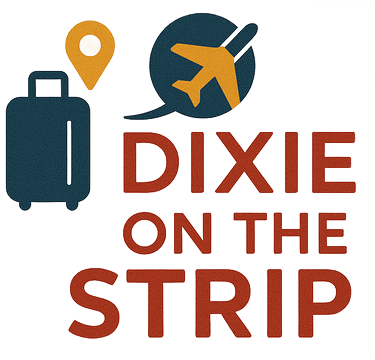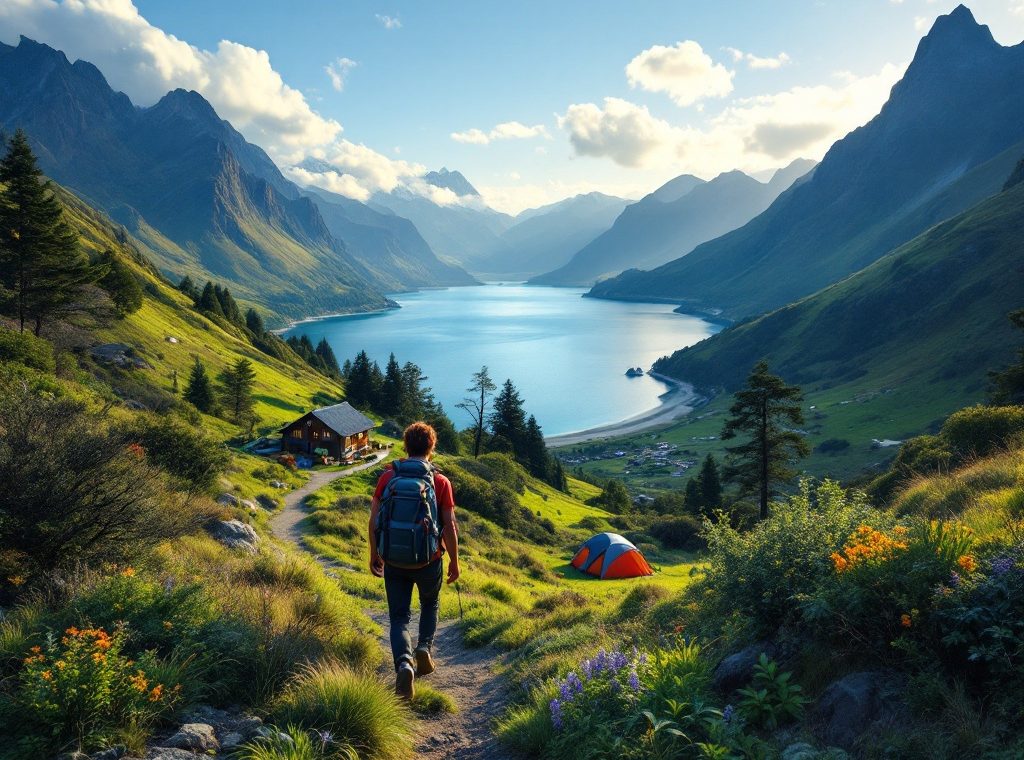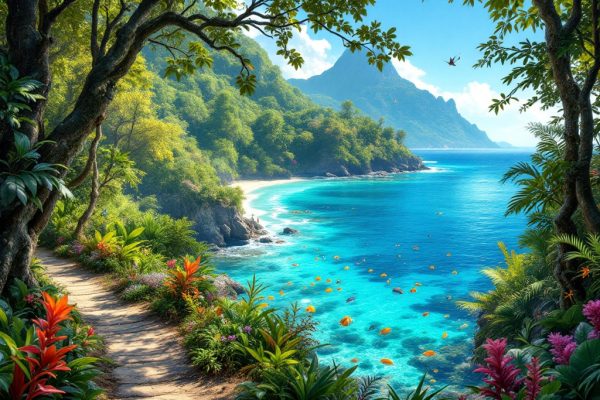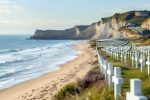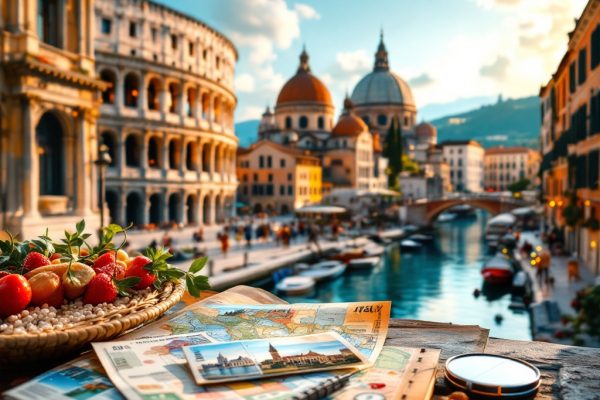Budgeting for a New Zealand Trip: Tips for Saving in Paradise
Dreaming of a three-week New Zealand adventure? Discover how to explore this breathtaking country on a budget of $80-$100 USD per day. Learn essential tips for affordable flights, accommodation (from budget-friendly hostels to free campsites!), transportation, food, and exciting activities. Uncover how to balance free natural wonders with unforgettable paid experiences, maximizing your trip without breaking the bank. Start planning your dream New Zealand escape today!
Important information
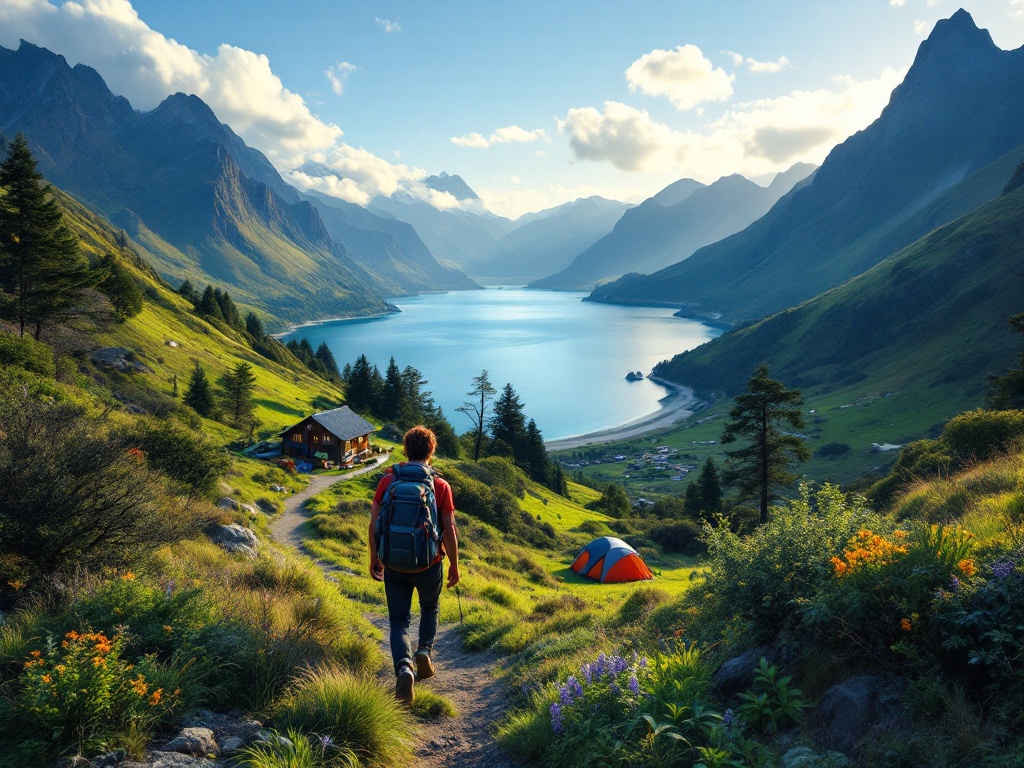
- A daily budget of $80-100 USD is a good starting point for backpackers, while mid-range travelers should aim for $150-250 per day. Luxury travelers should budget $300+ per day.
- Flights average around $1,400 round-trip, but this varies depending on origin and booking time. Consider inter-island travel costs too.
- Save money on accommodation by camping (including free campsites!), staying in hostels ($20-30 per night for dorms), or using Airbnb for budget-friendly options with kitchen facilities.
- Self-catering is significantly cheaper than eating out. Prepare your own meals using groceries from local supermarkets like Pak’nSave.
- Take advantage of New Zealand’s abundant free activities like hiking scenic trails, exploring beaches, and visiting national parks.
Understanding the Costs of a New Zealand Trip
Planning a three-week adventure in New Zealand? Budgeting is key to a stress-free trip. A daily estimate of $80-100 USD (approximately $2,038 NZD for three weeks) is a good starting point. Flights contribute significantly to the overall cost, averaging around $1,400 for a round-trip, depending on your origin and booking time. Inter-island travel is essential for exploring both islands and will add to your travel expenses. Accommodation, activities, and food will also constitute a significant portion of your budget.
Estimated Costs for a 3-Week Trip
- Daily budget: $80-100 USD ($2,038 NZD total),
- Round-trip flights: $1,400 (variable),
- Inter-island travel: consider this additional cost.
Key Budget Considerations
- Accommodation,
- Activities,
- Food,
- Souvenirs,
- Travel insurance.
For a three-week trip for two, encompassing diverse activities and catering to various travel preferences, a budget of around €4,000 is a reasonable benchmark. Careful planning is essential to maximize your New Zealand experience. Enjoy the incredible adventures that await!
Breaking Down Common Expenses
Plan your New Zealand adventure with an estimated budget breakdown: $603 NZD for comfortable lodging, $410 NZD for exciting activities (hiking, exploring hidden gems), and $242 NZD for delicious local cuisine. This covers your essential trip expenses.
Average Daily Budget Recommendations
Traveling to New Zealand on a backpacker’s budget? Expect to spend between $80 and $100 per day, covering basic necessities. For a more comfortable experience with better accommodations and dining, a mid-range budget of $150 to $250 per day is recommended. Luxury travelers seeking premium lodging, gourmet meals, and private transportation should budget upwards of $300 per day. As a general estimate, a three-week trip could cost around €2980, but this can vary significantly based on individual travel styles and preferences.
Planning Your New Zealand Adventure
Planning your New Zealand adventure requires smart budgeting. Research typical expenses like accommodation, food, transport, and activities. Budgeting apps can help track your spending and stay within your limits. Prioritize free activities like hiking and enjoying the stunning scenery. Allocate funds for unique experiences, but balance these splurges with budget-friendly options.
Tips for Reducing Costs
- cook your own meals,
- use grocery stores for snacks,
- plan your itinerary in advance.
Embrace Flexibility
While planning is important, stay flexible. Unexpected discoveries and weather changes are part of the adventure. You might stumble upon a hidden gem.
Creating a Budget and Sticking to It
Planning your New Zealand adventure starts with a realistic budget. Estimate essential expenses like accommodations, transportation, and food. Don’t forget to include exciting activities and a buffer for unexpected costs. Research current prices to gauge average costs for each category. A budgeting app can be invaluable for real-time spending tracking, helping you stay within budget. If you splurge on a delicious dinner, perhaps balance it with a less expensive activity the next day. Flexibility is key; adapt your budget as needed. With careful planning and mindful spending, you can experience New Zealand’s magic without financial stress.
Estimate essential expenses. Consider accommodations, transportation, and food costs.
Factor in activities and a buffer. Include exciting activities and a financial cushion for unforeseen expenses.
Research current prices. Determine average costs for each category to ensure accuracy.
Utilize a budgeting app. Track your spending in real-time to stay on track.
Be flexible and adapt. Adjust your budget as needed to accommodate unexpected expenses or splurges.
Planning Splurges and Managing Expenses
Fund your dream experiences by prioritizing must-do activities and pre-booking popular tours or that coveted dinner reservation. Tracking expenses against your budget balances splurges with overall costs, allowing you to indulge while staying on track.
Enhance your trip with free activities like exploring parks and visiting free museums for a richer experience without overspending.
Accommodation: Finding Budget-Friendly Options
Traveling on a budget can be an enriching experience. Consider these budget-friendly accommodation options:
- Hostels and dorm rooms: these offer fantastic value for budget travelers.
- Camping: embrace the outdoors and enjoy an economical adventure.
- Airbnb: find budget-friendly stays, often with kitchen facilities.
- Campervans: seek out free or inexpensive campsites for a unique experience.
Here are some additional tips for stretching your travel budget:
Look for amenities like free parking and laundry to maximize your savings.
Cooking your own meals, particularly in hostels or Airbnbs with kitchens, is a great money-saver.
While saving on accommodation is key, consider sprinkling in unique paid experiences. A guided tour or a local cooking class can create lasting memories.
Clever planning maximizes your travel budget and enhances your trip.
Hostels and Dormitory-Style Accommodations
Traveling to New Zealand on a tight budget? Consider these affordable accommodation options:
Hostels
- Dorm beds: from $20-$30 per night.
- Private rooms: around $50 per night.
Airbnb
Private rooms and apartments ranging from $30 to $80 per night, a great option for couples.
Camping: The Cheapest Accommodation Option
Experience New Zealand’s stunning landscapes without emptying your wallet—go camping! The Department of Conservation provides numerous basic campsites, typically priced between $6 and $20 per person, per night. Even better, free campsites are scattered throughout the country, offering budget travelers incredible savings compared to hotels or Airbnbs. Pitch your tent and immerse yourself in nature’s beauty.
Using Airbnb for Affordable Stays
Looking for affordable and unique accommodations? Consider Airbnb for your next trip. You can find a variety of private rooms and entire homes, often at lower prices than hotels. Many Airbnbs also feature kitchens, enabling you to save money by preparing your own meals. For an unforgettable adventure, explore Airbnb options in less-traveled locations, uncovering hidden gems and creating lasting memories.
Transportation: Cost-Effective Ways to Travel
Car Rental
Renting a car, despite the cost, offers unparalleled freedom to explore at your own pace, allowing you to fully appreciate New Zealand’s stunning landscapes and charming towns.
Hitchhiking
For budget-conscious travelers, hitchhiking is a popular and generally safe way to experience New Zealand.
Backpacker Buses
Backpacker buses provide a flexible and social way to travel, allowing you to hop on and off at various locations throughout the country.
Public Transport
Public transport, including bus passes from companies like nakedBus, offers a cost-effective way to see both islands. Booking in advance often secures better deals.
Domestic Flights
While convenient for long distances, such as Auckland to Queenstown, domestic flights can be expensive. Consider prioritizing scenic ground transport if your schedule allows.
Ride-sharing
Ride-sharing offers a practical solution for shorter trips within New Zealand.
Renting a Vehicle: Understanding the Costs
Considering renting a car in New Zealand? Car rentals and gas can be expensive. A campervan offers a cost-effective alternative, combining transportation and accommodation. Freedom camping, available at numerous free or inexpensive sites, significantly reduces accommodation expenses. Most freedom camping locations require self-contained vehicles equipped with a toilet and wastewater tank for responsible travel. Enjoy your New Zealand adventure!
Hitchhiking and Public Transport Options
Traveling in New Zealand offers several budget-friendly options. Backpacker buses provide flexibility, allowing you to explore various routes at your own pace. Public transport, including buses and trains, is readily available, particularly in cities and between popular destinations. Hitchhiking is also a common practice.
Domestic Flights and Budget Airlines
Air travel within New Zealand offers significant time savings, especially for inter-island journeys or long distances. Budget-conscious travelers can find affordable flights with carriers like Jetstar and Air New Zealand, especially when booking in advance.
Traveling during off-peak periods can also reduce costs.
Don’t forget to factor in other transportation expenses. Buses and ferries sometimes offer a cheaper alternative.
Compare prices and travel times to determine the best option for your trip.
Food and Dining: Eating on a Budget
Managing your food budget in New Zealand is easier than you think. Groceries for two people average around $15 NZD, while a budget-friendly café meal costs about $20 NZD. Even fast food is roughly $15 NZD. Preparing simple meals like oatmeal or sandwiches, along with home-brewed coffee instead of a $5 NZD café Americano, can significantly stretch your budget. While cutting back on restaurant meals can save you money, don’t miss out on unique cultural experiences. Consider free activities like hiking to maximize your funds and enjoy New Zealand’s stunning scenery.
Cooking Your Own Meals and Grocery Shopping
Self-catering in New Zealand is a fantastic way to save money and enjoy healthier meals. Restaurant prices can quickly add up, while grocery shopping at supermarkets like Pak’nSave offers a budget-friendly alternative, featuring fresh, local ingredients. Choosing accommodations with kitchens drastically cuts food costs. The price of one restaurant meal could cover several days’ worth of groceries. It’s also a fun opportunity to explore New Zealand’s cuisine and create your own culinary adventure.
Benefits of Self-Catering in New Zealand
- Save money, restaurant prices can be high while groceries are more affordable.
- Enjoy healthier meals by controlling ingredients and cooking methods.
- Experience local cuisine by shopping at supermarkets like Pak’nSave with fresh, local produce.
- Have a culinary adventure, creating your own meals with New Zealand’s ingredients.
- Control your food budget, the cost of one restaurant meal can equal several days of groceries.
Why Choose Self-Catering
Self-catering gives you the flexibility and freedom to enjoy meals on your own terms. It’s a great way to immerse yourself in the local culture, discover new ingredients, and manage your travel budget effectively. Whether you’re staying in a holiday home or a motel with kitchen facilities, preparing your own food can significantly enhance your New Zealand travel experience.
Avoiding Expensive Dining: Tips and Alternatives
Saving money while enjoying New Zealand can be easy. Here’s how:
Skip the café and refill a reusable water bottle. Brew your own coffee or tea at home.
Explore local markets for fresh produce and ingredients, often cheaper than supermarkets. Take advantage of restaurant lunch specials and early-bird dinner deals.
Embrace budget-friendly options like takeaway, casual eateries, or food trucks. Pack a picnic to combine delicious food with stunning New Zealand scenery, saving money while enjoying the outdoors.
Activities and Entertainment: Saving While Exploring
Explore New Zealand’s natural beauty without breaking the bank. Discover free activities such as hiking the Tongariro Alpine Crossing, exploring pristine beaches, wandering through botanical gardens in Wellington and Christchurch, and immersing yourself in the country’s stunning national parks.
Enhance your trip with paid experiences while saving money
- Utilize discount platforms like BookMe and Klook.
- Plan ahead to avoid impulse purchases and secure better rates.
- Consider free alternatives within paid attractions, like a scenic walk in a national park instead of a pricey guided tour.
- Prioritize a few key paid experiences to manage your overall budget.
Free Activities
- Hike the Tongariro Alpine Crossing.
- Explore pristine beaches.
- Wander through botanical gardens in Wellington and Christchurch.
- Explore New Zealand’s stunning national parks.
Free Nature Activities and Scenic Views
New Zealand offers incredible experiences for budget travelers who love the outdoors. Explore stunning volcanic landscapes on the Tongariro Alpine Crossing. Discover countless free beaches and wander through national parks like Abel Tasman and Fiordland. Botanical gardens in Dunedin and Christchurch also offer free admission. For breathtaking panoramic views, visit Wellington’s Mount Victoria Lookout. In New Zealand, nature’s beauty is accessible to everyone.
Cost-Saving Strategies for Paid Activities
Explore New Zealand’s stunning landscapes without breaking the bank. Hike through breathtaking national parks like Fiordland and Tongariro, immersing yourself in nature’s beauty for free. Discover picturesque gems such as Milford Sound and Hokitika Gorge without spending a dime. For thrilling experiences that won’t drain your wallet, consider a refreshing swim, a peaceful nature walk, or a visit to a vibrant local market. If adventure activities are a must, secure discounts by booking in advance and searching for combo packages. Many operators offer bundled deals for greater savings. Remember to check for student, senior, or family discounts to make your travel budget go even further.
Additional Money-Saving Tips
Stretch your travel budget with these smart tips:
Travel during the spring or fall shoulder seasons for significant savings on flights and accommodations.
Pay with cash to avoid credit card fees, maximizing your travel funds.
Embrace free activities:
- hiking scenic trails,
- relaxing on sandy beaches,
- visiting museums on complimentary days.
Prepare some of your own meals to save money and experience the local grocery scene.
Traveling During Shoulder Season
Discover the magic of New Zealand in spring or autumn for a truly unforgettable experience. Enjoy fewer crowds, lower prices, and a more relaxed pace. You’ll find better deals on accommodations and transportation, plus enjoy shorter lines at popular attractions.
Using Cash Payments to Avoid Credit Card Surcharges
Paying in New Zealand can be done in a few ways. To avoid credit card surcharges, consider these options: pay with cash, use a debit card, or opt for a multi-currency card for cost-effectiveness.
